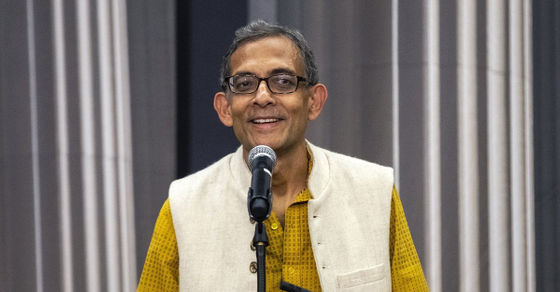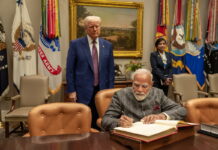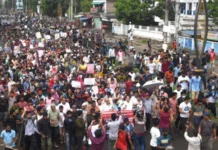JAIPUR: Nobel Prize winning economist Abhijit Banerjee feels that for effective governance, it is important to have a solid opposition that can keep up the delivery pressure. “When the opposition is scattered and weak, it can lead to a situation where the government can think it can do anything. A democracy requires a solid opposition,” he said.
Talking about the stress points in the Indian economy, Banerjee emphasised that the condition of the financial sector was worrisome. “We know the condition the banks are in and the fact that the government doesn’t have money. There is a great demand deficit and this emerges from the fact that people are not confident enough and therefore not spending.”
Refusing to take any questions on the contemporary political scenario in the country, Banerjee, who was at the Jaipur Literature Festival said the slowdown in the urban sector was bound to have negative ramifications on the whole economy. “Let us not forget that the rural economy is depended on the urban one as the latter provides jobs to those residing in the countryside. So, as soon as the urban sector goes down, it affects the rural one.”
In a time when almost all political parties promise high subsidies especially before elections, Banerjee states that they were important for the poor and should not be done away with. However, he adds, “When these subsidies are also provided to those who may not need them, then things become very confusing.”
An expert in poverty alleviation, the economist said that India had made a substantial improvement when it came to reducing poverty. “Look at the figures, in the last 70 years, since independence, poverty has come down from 40 per cent in 1990 to 20 per cent.”
He added that right now was the time when taking even short-term steps to kickstart the economy made sense. “The United States government kept pumping in money during 2008, 2009 and 2010 and printing more currency. In times of crisis, it is important to jump-start rather than think about how we will scale down later.”
On the effect of demonitisation, Banerjee feels that the move was extremely harsh on informal sector, which for long did not have enough cash. “Due to extremely low cash, shopkeepers couldn’t even keep enough stock. It’s difficult to say if the effect is still there.”
Putting to rest all speculation, the Nobel Prize winner made it clear that he was not going to quit his job in the US and come here. “Of course, I am always available whenever someone wants to talk to me. Also, we work with a lot of state governments in India across the political spectrum.”
Banerjee also feels that the GST’s structure needs to be simplified as having four slabs is against the very spirit of GST. “It may have a maximum of two.”
He, however, didn’t elaborate on the positive indicators in the economy in the last two months. “Yes, there are some, but the data is very new.”
When asked about the situation when the data collected by the government is not trusted, Banerjee stressed that the lack of it (trust) can make foreign investors nervous. “Therefore, when you want more global participation, it is important that the data is very reliable.”
Life has changed in different ways for him after the Nobel win. “Well, too many people want selfies now.” IANS







